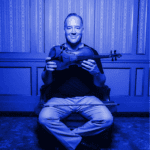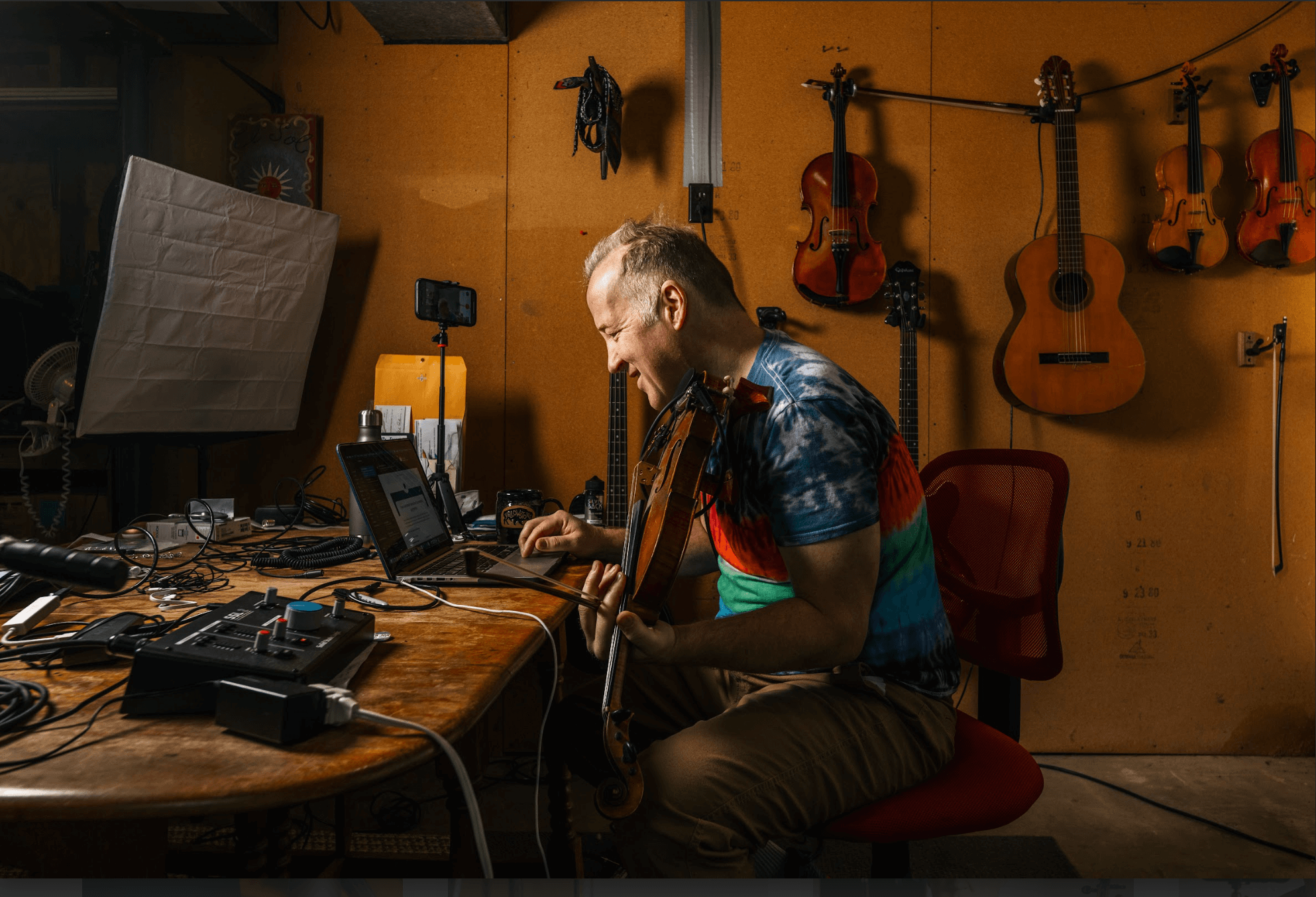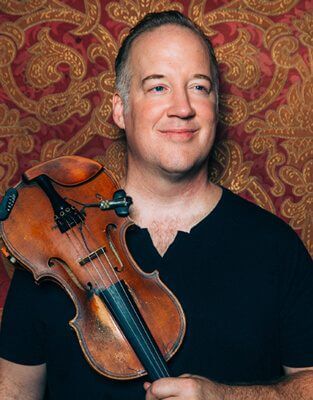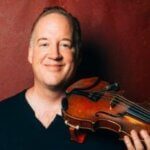Table of Contents
Is Music Theory Necessary?
The following is an exchange with an electric violinist who asked whether it’s important to learn music theory. See my answers in the video or read the full exchange below.
“Hey Christian! Thank you for all that you do for the Electric Violin world! I have a question:
If it’s true that at some point your fingers basically know every possible pattern that they are capable of, therefore you don’t have to think of what notes you are playing anymore, as your ears start to place those patterns in the correct places…
#1 are you processing notes in your head or by pattern/ear?
#2 If I practiced every pattern with form, etc, and practiced listening with my ear for placement, why learn music theory??
#3 What came first: written notation, theory OR someone just playing what they felt?”
My Answers
“If it’s true that at some point your fingers basically know every possible pattern that they are capable of…”
With 12 notes for each of 4+ octaves on the violin, I assume many lifetimes would not enable us to know all the sequences/patterns/iterations available.
However, if the question is, “Once we know a scale or a few chords well enough, can we express ourselves adequately over certain types of forms or songs?”, my answer is yes.
Musicians can say a lot with whatever language, theory, or technical ability they have. Les Paul basically had 2 functioning fingers on his left hand at the age of 80-94 when I played with him. He played a lot of music with those two fingers.
This begs the question of “How much theory does a musician actually need to learn?”
A musician can say a lot with the knowledge they have, but it depends on the musical context. I may be comfortable playing over a rock groove because I’m familiar with rock music; but then, when I try to play over a bluegrass tune, I may not have learned the rhythmic or melodic language.
The same is true of harmonic language. The guitar solo in Stairway to Heaven uses three chords that can easily be navigated using the A minor pentatonic scale. One can basically play any note in the scale over that solo and it will sound fine. But this strategy may not apply to Giant Steps. We need to learn harmonic or rhythmic information to fit different musical contexts, including functional musicianship specific to the rhythm section. Even in a context that seems easy to play over such as a blues form, we’ll be able to say more by going beyond blues scales.
#1 are you processing notes in your head or by pattern/ear?
If I try to think about the ways I perceive music, there are at least 5 ways:
- on the staff
- on the violin fingerboard
- on other instruments or my voice
- a sound
- a note name
Whether I rely more heavily on one or another I’m not always sure.
If I had the ability to “see colors in sound”, had a higher degree of perfect pitch, or played other instruments, I would have other ways of understanding the note. But if I don’t have those abilities, I rely on what I have.
Similar to how a blind person’s sense of hearing or smell tends to be more enhanced, musicians who do not read music tend to develop stronger ears and musical memory. Presumably, we all rely more or less on different perceptual abilities- some more on reading, theory, or ears… Strengthening any one of these will help but it could be difficult, and not always worth the effort. On the other hand, it could be revelatory.
NPR did a piece about a woman who has Aspergers’ syndrome. People with Aspergers are missing a function in the brain that enables neurotypical people to read into emotions and the tone of social context in everyday speech. When a magnet was applied to this person’s brain, she was able to recognize nuances of social exchanges such as sarcasm, irony, humor, etc… for the first time in 50 years. She suddenly became aware of all the nuances she had been missing.
Musicians without training in textbook music theory have their own personal theories or strategies.
Music theory may dictate that a chord is a “Major 7”. A musician who does not know the name “Major 7” may have another name for this chord. They may have some point of reference, either from their ears, the fingerboard, a lick they learned, etc… that gives them an anchor to know what they want to do with that Major 7 chord.
Instead of calling this music theory, let’s call it “applied theory”, or “functional theory”. i.e., “Anything that gives you an understanding and confidence in what you want to do musically in a given context”.
Applied Theory is very contextual. So a musician could have an understanding of how to navigate the harmony or rhythm of a funk tune, but not a famous Bossa Nova…In order to feel comfortable in that Bossa Nova, they may need to develop more “applied theory”… Whether that applied theory needs to come from a textbook, it may depend on that musician and/or the textbook.
Music theory for classical musicians is Eurocentric. It applies to classical music more than other styles.
Sure, we can apply some Eurocentric concepts of theory to harmony in Jazz or Latin music, et al., but I learned about playing blues and Jazz from pianist and organist Bobby Floyd. Bobby didn’t quote textbooks. He quoted his experience playing in church. That’s also a kind of music theory that informs his genius. I’d ask him about augmented chords and he’d give answers about “playing in the pocket” and “listening for the Spirit”.
We should separate Music Theory from Musical Values, although they are related.
Playing Bach tends to rely on specific Musical Values.
Playing James Brown may rely on some of the same, but also some other musical values.
How we can listen to James Brown and Bach is different too. Whether we are listening for groove, or intonation, etc…
How to approach and/or succeed playing either of these types of music is different. If I want to succeed playing James Brown, or playing any pop music on the violin then I would focus on rhythm and/or the essence of blues and funk, whatever that is. If I want to succeed playing Bach, I would focus more on analyzing phrases, or playing with a connected bowing…
If I have never played James Brown, and I’ve played a lot of Bach, then all the theories in the world may not mean anything. I wouldn’t be able to just play James Brown well until I learn about THAT theory…
#2 If I practiced every pattern with form, etc, and practiced listening with my ear for placement, why learn music theory??
Exactly. You should only learn whatever you need to do a specific thing well. It’s all about context. If you want to play Giant Steps by John Coltrane – a tune with a lot of modulating chords – and if you’ve never dealt with that song before, or with a lot of modulating chords, then you would need to learn SOME WAY of dealing with those modulating chords.
Music is diverse and we can understand some music VERY well while still needing to figure out how to understand other music… whether you want to call that theory or “Some Kind of theory”…. So if you can learn to play giant steps by ear, or finger patterns, or licks, or “memorizing the chord changes in terms of voice leading on a staff” (which is sort of like what I try to do, and maybe people would call that “typical music theory”) then whatever works for you works.
The reason to learn any kind of music theory is to be able to do something you cannot currently do.
None of us can do everything. So the question is “Do you want to be able to do that thing”??
- When the pianist plays a sweet reharmonization that eludes your ears, do you want to understand it? It’s your choice.
- Do you want to be able to play 13 instruments like Hamilton Hardin or are you good with one?
- Do you want to learn 6 foreign languages or are you good with English?
- Do you want a bigger house or are you good?
- We all get to decide which battles to pick.
Within our goal to be better musicians, there is a binary choice to be made between:
- Saying more with what we already know (or with the chops we already have)
- Acquiring new skills or knowledge that will serve us to do something better.
The important thing in all of this is Self Awareness. Knowing our limits, knowing our strengths, knowing our goals, and owning our choices.
#3 What came first, written notation, theory OR someone just playing what they felt?
I honestly have no idea.
But I do know this:
If you are a string player or classical musician/teacher interested in expanding musicianship beyond your training, there are things you can do to level up.
–learn music theory (and more) with your instrument in hand during weekly group classes.
-take an intro private lesson to improvise on violin in any style
-try these courses on Tonal improvisation, free improvisation, and/or schedule a call to explore options.
